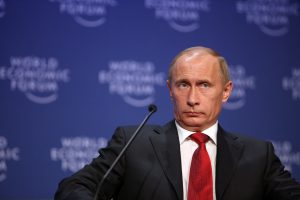We have to go back to after the war. To understand the reasons that led Emmanuel Macron to choose a high-ranking civil servant, Jean Castex, who has never held a political role, as the new Prime Minister, one has to admit that France and the entire European Union are in the same situation as they were in 1945.
We are not, of course, emerging from the same abyss of horror and destruction, but, by stopping production for two months, by causing unemployment to skyrocket and by damaging so many large industries and small businesses, the pandemic has done more than just dramatically reducing the GDP. It has exposed the extent of our weaknesses, made visible the dangers of deindustrialization and the changes taking place in vital sectors such as the automotive and aerospace industries, raised a general awareness of the dangers weighing on planet Earth, and opened our eyes to China’s transformation into a champion of high technology.
In France, as in the whole of the Union, we are now faced with the tasks of defining new industrial priorities, making up for lost time in the fight against global warming and equipping ourselves with new weapons in an increasingly brutal competition with the American and Chinese powers. As after the Liberation, everything has to be rethought and it is therefore up to the public authorities, the State and politics, to take the lead in industry to organise this change of an era.
This is called “dirigisme”, which is of course not communism, nor the collective ownership of the means of production, but the implementation, within the framework of the market economy, of an industrial policy defined by the State in consultation with the main players of the economic and social life. This was the rule in Europe throughout the post-war period but, after having reached its peak in France under General de Gaulle, dirigisme had finally bowed to the neo-liberalism theorized by the “conservative revolution” of the 1980s.
Ronald Reagan and Margaret Thatcher proclaimed that “the State is not the solution but the problem”. The world followed them for four decades, but the wheel is turning, once again. Once again, the State has become the solution and is once again indispensable to the market economy because it is necessary to work towards a common good that transcends the immediate interests of shareholders; also because only public authorities can mobilise and guarantee the capital required by the challenges of the day and because it is up to elected representatives to set the priorities for the investment of the hundreds of billions of euros in the national and European recovery plans.
The differences between crickets and ants are blurred by the need for European common borrowing. Between the proponents of budgetary orthodoxy and the others, the great dispute introduced by the conservative revolution is coming to an end at the same time that the conservative revolution itself is ending, and when simultaneously, even in France, the difference between the political right and left is losing much of its relevance.
For, after all, is this turn that Emmanuel Macron has just taken by appointing Jean Castex, is it a right-wing change? Left-wing? More or less Green? The press and the French political world have been asking this question the whole weekend, but that is not the point. In 1945, right and left were both dirigistes and this new Prime Minister who had for a long time contributed to a right-wing party claims to come from “social Gaullism”, a dirigiste right-wing which is also concerned with equity between Capital and Labour. Equally appreciated by trade unions and employers, and above all known for his organisational skills, the man whom the President of the Republic has taken on his side could not be immediately disqualified by the left, which has refrained from doing so, by the way. The right, for its part, could not disown him because he is coming from its ranks, and this appointment thus disarmed right and left even before the government was formed and began to tackle the restructuring of the French industry.
Does this make Jean Castex the right-wing craftsman of a left-wing turn? If we consider that dirigisme is fundamentally left-wing because it intends to channel the market, the answer is “yes”, but Keynes, the mastermind behind dirigistes, was a liberal. Left or right: the debate is no longer there because we are in 1945, with a Europe to be rebuilt, and a France to be rebuilt in particular.



